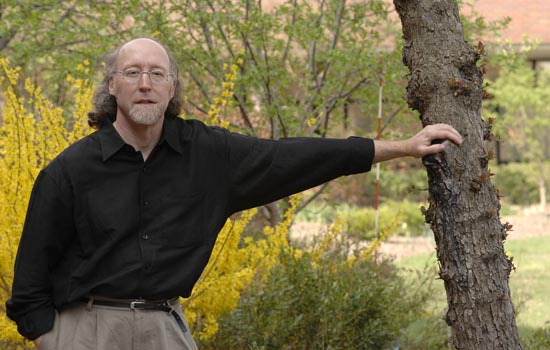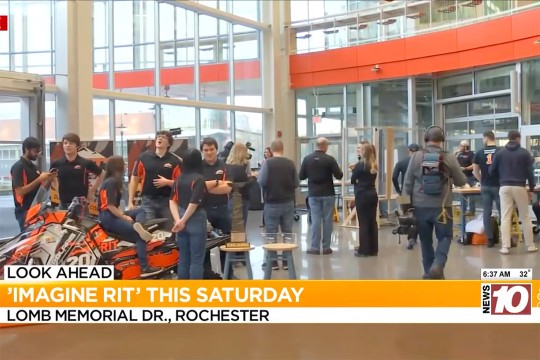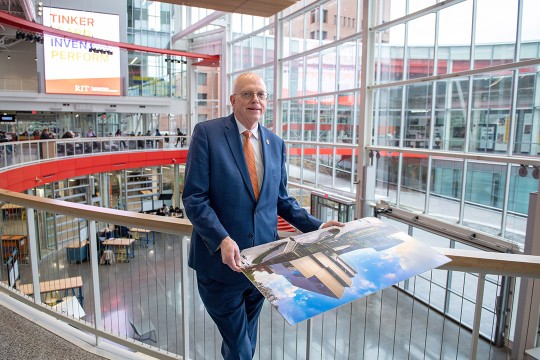Giving students the tools to think about themselves in new ways
A. Sue Weisler | photographer
Engström: Giving students the tools to think about themselves in new ways
Professor Timothy Engström sometimes drives his vintage 1939 Indian motorcycle (a precursor to Harley-Davidson) to work at RIT because he likes to give it some “exercise.” It’s sort of the same attitude Engström has about teaching core Philosophy 210 or a graduate course in Philosophy of Art/Aesthetics in the College of Liberal Arts: to exercise and open students’ minds in ways they never thought possible. Although Engström won RIT’s Eisenhart Award for teaching excellence in 1994, the honor of receiving it in 2008 is even more meaningful. “It was a way to see for myself—am I still any good at it?”
Prior to RIT, Engström studied abroad at universities in Scotland, Britain, Germany and Sweden—then took a teaching post at the University of Hawaii. A native of small town U.S.A.—Barneveld, N.Y., population 400— Engström returned to his upstate Adirondack roots to be closer to family. RIT was the perfect fit, and after teaching for nearly two decades in the Department of Philosophy, Engström remains motivated to “turn these students on.” “In bringing students into the realm of philosophy, we give them tools for thinking about themselves and their academic pursuits in new ways. Teaching isn’t about teaching. Teaching is really about engagement, and some of the students at RIT have stopped us in our tracks with their insights—with their ability to connect philosophy to their other academic pursuits.”
Engström speaks other languages besides “philosophy”—Swedish, French, German, and a smattering of Greek/Hebrew—all of which are a boon to his travels abroad. He enjoys everything from reading and movies to skiing, mountain climbing and tinkering with his vintage vehicles (a ’57 Triumph and ’60 four-cylinder diesel Mercedes-Benz). In 2006, he co-authored a book on health-care reform with Wade Robison, and in the works is Rethinking Theories and Practice of Imaging, co-authored with Evan Selinger.
“It’s about the philosophy of vision,” Engström explains, “about how technologies of sight can transform and reshape how we see the world.” Engström believes one of the biggest challenges in teaching today is a direct result of living in a networked-driven society. “If a good computer scientist, artist, engineer or environmental science student is in class, they should and do see things differently. But sustaining their focus can be difficult because their cognitive habits are increasingly distributed; electronic networks are provoking different styles of thought—more associative and less systematic.” “My job is to reach out to these students from across the silos and fiefdoms of programs at RIT and help them explore and articulate the relationship between their aptitudes in these disciplines and philosophy, so we become a real working intellectual community.”















